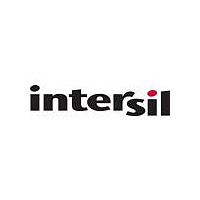ISL6402EVAL4 Intersil, ISL6402EVAL4 Datasheet - Page 17

ISL6402EVAL4
Manufacturer Part Number
ISL6402EVAL4
Description
EVALUATION BOARD ISL6402
Manufacturer
Intersil
Datasheet
1.ISL6402IR.pdf
(19 pages)
Specifications of ISL6402EVAL4
Main Purpose
DC/DC, Step Down with LDO
Outputs And Type
3, Non-Isolated
Voltage - Output
1.2V, 2.5V, 3.3V
Voltage - Input
4.5 ~ 24V
Regulator Topology
Buck
Frequency - Switching
300kHz
Board Type
Fully Populated
Utilized Ic / Part
ISL6402
Lead Free Status / RoHS Status
Contains lead / RoHS non-compliant
The recommended output capacitor value for the ISL6402 is
between 150µF to 680µF, to meet stability criteria with
external compensation. Use of aluminum electrolytic,
POSCAP, or tantalum type capacitors is recommended. Use
of low ESR ceramic capacitors is possible but would take
more rigorous loop analysis to ensure stability.
Output Inductor Selection
The PWM converters require output inductors. The output
inductor is selected to meet the output voltage ripple
requirements. The inductor value determines the converter’s
ripple current and the ripple voltage is a function of the ripple
current and output capacitor(s) ESR. The ripple voltage
expression is given in the capacitor selection section and the
ripple current is approximated by the following equation:
For the ISL6402, use Inductor values between 1µH to 3.3µH.
Input Capacitor Selection
The important parameters for the bulk input capacitor(s) are
the voltage rating and the RMS current rating. For reliable
operation, select bulk input capacitors with voltage and
current ratings above the maximum input voltage and largest
RMS current required by the circuit. The capacitor voltage
rating should be at least 1.25 times greater than the
maximum input voltage and 1.5 times is a conservative
guideline. The AC RMS Input current varies with the load.
The total RMS current supplied by the input capacitance is:
where,
DC is duty cycle of the respective PWM.
Depending on the specifics of the input power and its
impedance, most (or all) of this current is supplied by the
input capacitor(s). Figure 22 shows the advantage of having
the PWM converters operating out of phase. If the
converters were operating in phase, the combined RMS
current would be the algebraic sum, which is a much larger
value as shown. The combined out-of-phase current is the
square root of the sum of the square of the individual
I
I
∆I
RMS
RMSx
L
=
=
(
--------------------------------------------------------- -
=
V
IN
I
2
RMS1
( ) L ( ) V
DC DC
–
f
S
V
OUT
–
+
(
I
) V
2
RMS2
2
(
IN
OUT
)
)
17
ISL6402
reflected currents and is significantly less than the combined
in-phase current.
Use a mix of input bypass capacitors to control the voltage
ripple across the MOSFETs. Use ceramic capacitors for the
high frequency decoupling and bulk capacitors to supply the
RMS current. Small ceramic capacitors can be placed very
close to the upper MOSFET to suppress the voltage induced
in the parasitic circuit impedances.
For board designs that allow through-hole components, the
Sanyo OS-CON® series offer low ESR and good
temperature performance. For surface mount designs, solid
tantalum capacitors can be used, but caution must be
exercised with regard to the capacitor surge current rating.
These capacitors must be capable of handling the surge-
current at power-up. The TPS series available from AVX is
surge current tested.
4.5
3.5
2.5
1.5
0.5
5
4
3
2
1
0
0
FIGURE 22. INPUT RMS CURRENT vs LOAD
OUT OF PHASE
1
3.3V AND 5V LOAD CURRENT
IN PHASE
2
3
3.3V
November 8, 2004
4
FN9123.3
5V
5











